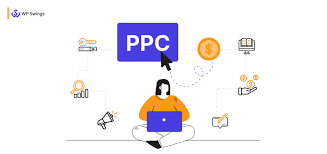The Power of PPC Advertising
Pay-Per-Click (PPC) advertising has revolutionized the way businesses promote their products and services online. In a digital landscape where competition is fierce, PPC offers a targeted and cost-effective solution to reach potential customers.
What is PPC Advertising?
PPC advertising is a model in which advertisers pay a fee each time their ad is clicked. This method allows businesses to bid for ad placement in search engine results or on websites. One of the most popular forms of PPC advertising is Google Ads, where ads appear at the top of search engine results pages based on relevant keywords.
The Benefits of PPC Advertising
Targeted Reach: With PPC advertising, you can target specific demographics, locations, and interests, ensuring that your ads are seen by the right audience.
Cost-Effective: Unlike traditional advertising methods, with PPC, you only pay when someone clicks on your ad. This means you can control your budget and measure the effectiveness of your campaigns.
Immediate Results: PPC campaigns can drive immediate traffic to your website, making it an ideal solution for businesses looking to generate leads or sales quickly.
Tips for Successful PPC Campaigns
Keyword Research: Conduct thorough keyword research to identify relevant keywords that your target audience is searching for.
Compelling Ad Copy: Create engaging ad copy that entices users to click on your ads and visit your website.
Landing Page Optimization: Ensure that your landing pages are optimized for conversions to maximize the effectiveness of your campaigns.
In Conclusion
PPC advertising offers businesses a powerful tool to reach their target audience and drive results. By leveraging the benefits of targeted reach, cost-effectiveness, and immediate results, businesses can enhance their online visibility and achieve their marketing goals through strategic PPC campaigns.
“Crafting a Winning PPC Strategy: An Essential Guide”
“Exploring PPC Advertising: Real-World Examples of Effective Ads”
4. “The Role of
- What is PPC vs Google Ads?
- What is PPC strategy?
- What is an example of a PPC ad?
- What is PPC advertising in marketing?
What is PPC vs Google Ads?
When comparing PPC to Google Ads, it’s important to understand that PPC (Pay-Per-Click) is a broader term that encompasses various types of online advertising where advertisers pay a fee each time their ad is clicked. On the other hand, Google Ads is a specific platform developed by Google for running PPC campaigns, primarily through text-based ads that appear on Google search results. In essence, Google Ads is a popular tool within the realm of PPC advertising, offering businesses the opportunity to bid on keywords and display their ads prominently in search engine results pages. Therefore, while PPC refers to the general concept of paying for clicks on ads online, Google Ads serves as a specific platform under the umbrella of PPC advertising tailored for Google’s search network.
What is PPC strategy?
A PPC strategy refers to a comprehensive plan of action designed to maximize the effectiveness of pay-per-click advertising campaigns. It involves determining the goals of the campaign, selecting the right keywords, setting a budget, creating compelling ad copy, and optimizing landing pages for conversions. A well-crafted PPC strategy aims to reach the target audience with relevant ads at the right time and in the right place to drive traffic, generate leads, and ultimately achieve the desired outcomes for the business. By carefully planning and executing a PPC strategy, businesses can enhance their online visibility, increase brand awareness, and boost their return on investment in digital marketing efforts.
What is an example of a PPC ad?
An example of a PPC ad can be seen on search engine results pages, where sponsored ads appear at the top of the page or alongside organic search results. For instance, when a user searches for “best running shoes” on Google, they may see paid ads from athletic shoe brands displayed prominently above the organic search listings. These PPC ads typically include a headline, a description, and a link to the advertiser’s website. By clicking on these ads, users are directed to the advertiser’s landing page, and the advertiser pays a fee to the search engine each time their ad is clicked. This example illustrates how PPC advertising allows businesses to promote their products or services directly to potential customers based on relevant search queries.
What is PPC advertising in marketing?
PPC advertising, short for Pay-Per-Click advertising, is a fundamental component of digital marketing strategies. In essence, PPC allows businesses to place ads on various online platforms and pay a fee each time a user clicks on their ad. This model enables companies to target specific audiences based on factors like demographics, interests, and search queries. By utilizing PPC advertising in marketing, businesses can increase their online visibility, drive targeted traffic to their websites, and ultimately boost conversions. The measurable nature of PPC campaigns also allows marketers to track performance metrics and optimize their strategies for maximum effectiveness.

